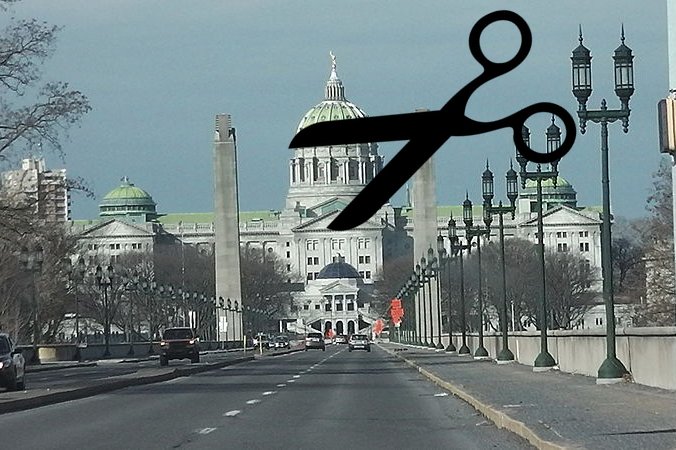
January 24, 2018
 Illustration by PhillyVoice/images via Wikipedia Commons
Illustration by PhillyVoice/images via Wikipedia Commons
The Pennsylvania State Capitol.
Think Pennsylvania's state government is bloated? You may have a say in chopping one branch down to about 75 percent of its current size in the near future.
House Bill 153 passed the State Government Committee on Tuesday in a vote split almost exactly along party lines, with the Republican majority sending it to the House floor for a full vote. The legislation would reduce the number of lawmakers in the chamber from 203 to 151 members.
The bill has to undergo an arduous process before state residents would vote on it because it would require changing the state constitution.
It was passed by both the House and Senate as it reads now during the 2015-16 legislative session, and needs to go through both chambers again with identical language before being placed on the November ballot. The legislation would only affect the House, not the 50-member Senate.
Calls to reduce the number of state lawmakers are not new; Pennsylvania notoriously has the largest full-time legislature in the country.
"My goal is to let our bosses, the people of Pennsylvania, make the final decision about the size of its state House," said state Rep. Jerry Knowles, R-Berks, the bill's sponsor. "The best-case scenario is that people will be able to vote on this in the general election.”
Of course, slashing the size of the legislature raises questions about how the new districts would be drawn, particularly in the aftermath of the state Supreme Court's recent ruling deeming Pennsylvania's U.S. congressional districts as unconstitutional and gerrymandered to favor Republicans. The state legislature, controlled by Republicans, will have to come to an agreement with Democratic Gov. Tom Wolf on a new map, or otherwise the Supreme Court will do it for them.
Rep. Chris Rabb, D-Philadelphia, brought this up while arguing for an amendment that would have set up an 11-member redistricting commission. He also noted how the intimacy of his district allows him to connect with constituents, and wondered how reducing the body's size would affect communities that feel they are "not heard."
Additionally, he said if the body did its job — such as passing budgets on time — they might not be having this conversation.
Ultimately, that amendment failed in a partisan vote, with Republicans arguing that the redistricting process wasn't relevant to the current question of whether it should occur, also noting that adding the amendment would start the lengthy process all over again.